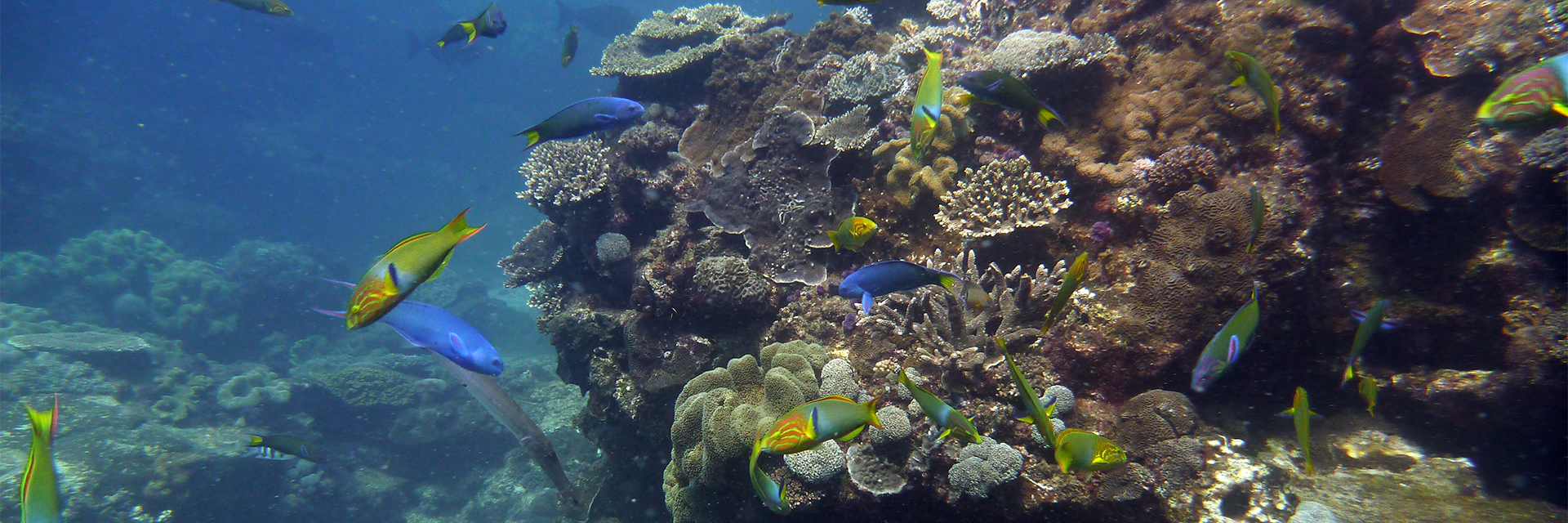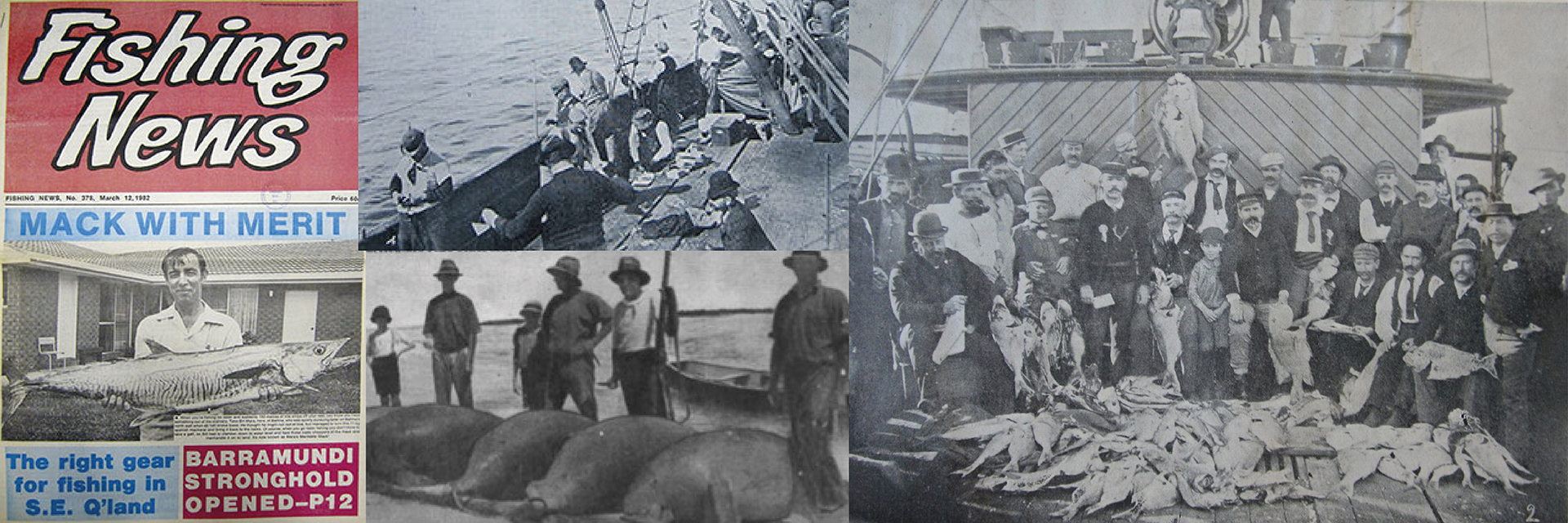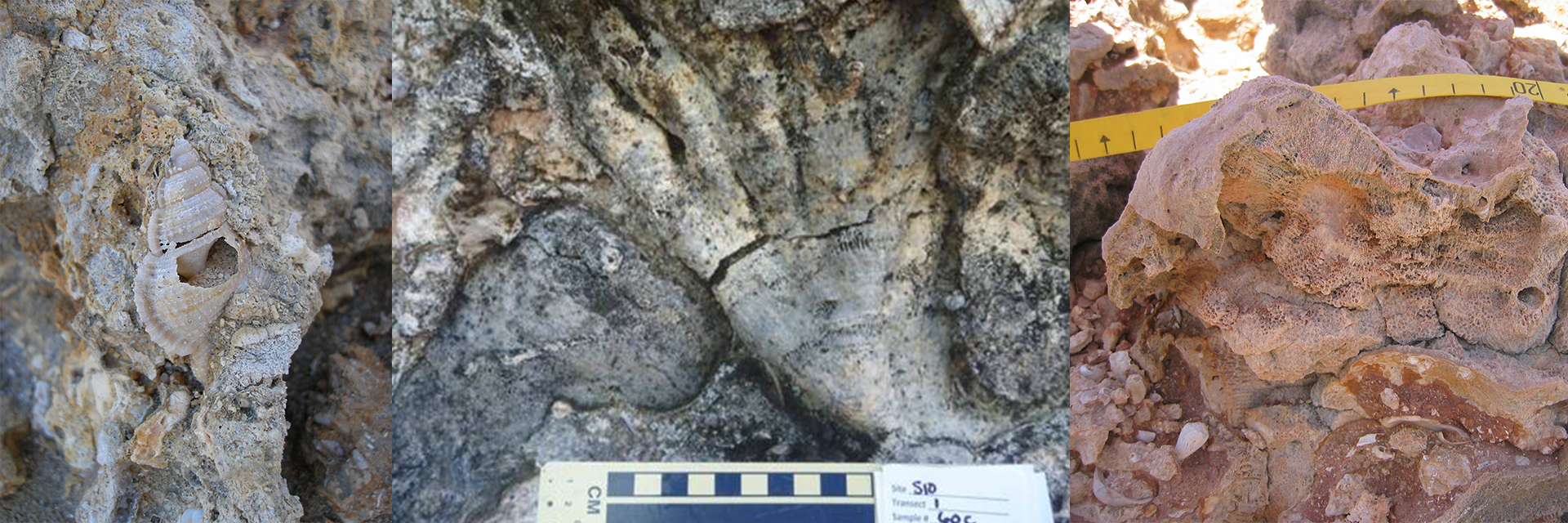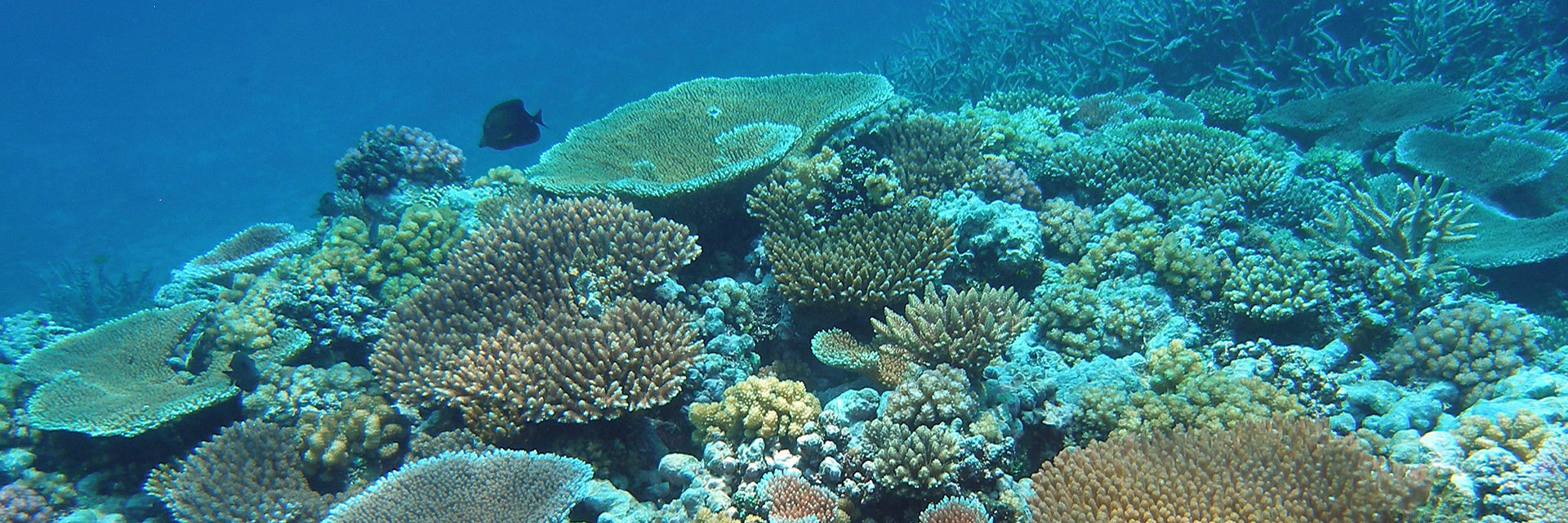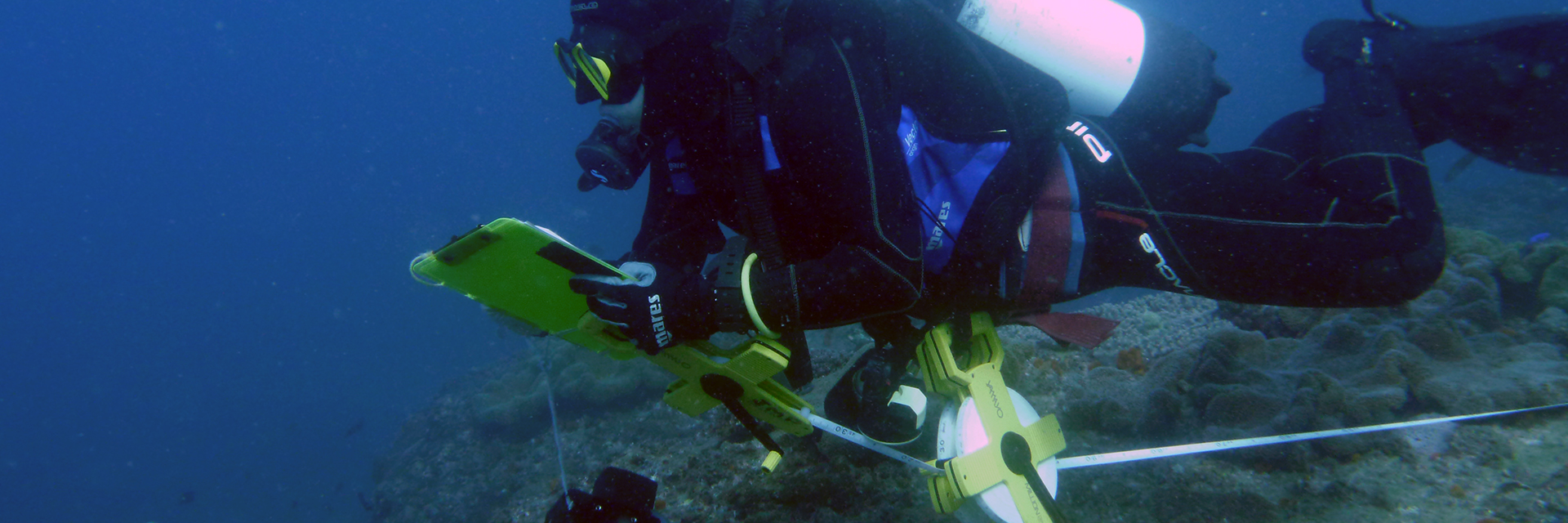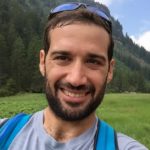January 2021
We are pleased to introduce two new Honours student into the Pandolfi lab in 2021.
Emer Cunningham – Honours Student
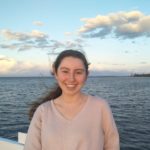 Emer joined the Marine Palaeoecology lab in mid-2019, where she worked with Carolina Chong-Montenegro to reconstruct historical fisheries along the coast of Queensland. Since that project, she has remained in the lab as an undergraduate researcher. Emer is currently completing her honours within a Bachelor of Advanced Science, where she is investigating taxonomic and functional ecological novelty in historical Queensland coral communities. Emer loves learning and teaching science, and when she’s not troubleshooting her code, you may find her tutoring university and high school students about biology.
Emer joined the Marine Palaeoecology lab in mid-2019, where she worked with Carolina Chong-Montenegro to reconstruct historical fisheries along the coast of Queensland. Since that project, she has remained in the lab as an undergraduate researcher. Emer is currently completing her honours within a Bachelor of Advanced Science, where she is investigating taxonomic and functional ecological novelty in historical Queensland coral communities. Emer loves learning and teaching science, and when she’s not troubleshooting her code, you may find her tutoring university and high school students about biology.
Ellen Hall – Honours Student
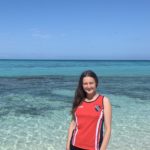 The far north Queensland Coastline off the Cape York Peninsula has remained relatively untouched since European Colonisation. With a majority of land classed as nature conservation area, the Cape York Peninsula has been characterized by low sediment run-off, making it an ideal site for understanding reef community dynamics with limited influence from local anthropogenic stressors. My study aims to assess temporal changes in the coral reef community composition and accretion rates pre and post European settlement in an isolated local with limited anthropogenic influence. To date, limited research has been conducted on community composition within the isolated inshore reefs of the far northern GBR, making this study a unique look into reef persistence through time.
The far north Queensland Coastline off the Cape York Peninsula has remained relatively untouched since European Colonisation. With a majority of land classed as nature conservation area, the Cape York Peninsula has been characterized by low sediment run-off, making it an ideal site for understanding reef community dynamics with limited influence from local anthropogenic stressors. My study aims to assess temporal changes in the coral reef community composition and accretion rates pre and post European settlement in an isolated local with limited anthropogenic influence. To date, limited research has been conducted on community composition within the isolated inshore reefs of the far northern GBR, making this study a unique look into reef persistence through time.
January 2020
We are pleased to introduce one new Honours student into the Pandolfi lab in 2020.
Nina Clark – Honours Student 
Nina joined the lab at the end of 2018 in a volunteer capacity working with Karin Zwiep on her aeDNA project. At the end of 2019 she completed her Bachelors of Science and Arts at the University of Queensland where she majored in Zoology, Film & TV, and Writing. She is currently doing her honours on the effect of water quality on bioerosion of corals focusing on the Frankland Islands in the Great Barrier Reef. She is interested in both marine and terrestrial life and considers science communication a vital part of her career.
April 2019
We are pleased to introduce two new researchers into the Pandolfi lab in 2019.
Carolina Chong-Montenegro – PhD Candidate
Carolina is a marine fisheries ecologist focusing on historical fisheries of rare and threatened fish species. She received her bachelor’s degree in marine biology from ESPOL in Ecuador, where she studied the ecology and biology of endemic grouper from the Galápagos Islands. She then received her master’s degree at the University of Bremen, Germany where she studied the biology and fisheries of the Pacific goliath grouper in Colombia. Overall her work focuses on documenting the impact of fishing on vulnerable fish populations and aims to actively integrate local communities into the research process by applying interdisciplinary approaches for developing sustainable fisheries.
January 2019
 Gal Eyal – Post-Doctoral Researcher
Gal Eyal – Post-Doctoral Researcher
Gal officially joined the Marine Palaeoecology Lab in October 2018, he is currently working as Marie Skłodowska-Curie postdoc fellow conducting research on Mesophotic Coral Ecosystems (MCEs), coral reef ecology, physiology, adaptation, and ecosystem dynamics using ecological and technological tools.
He moved to UQ from Israel (his home nation) after eight years in the Interuniversity Institute for Marine Sciences of Eilat (Red Sea) and Tel-Aviv University, where he obtained his M.Sc. and Ph.D. under the supervision of Prof. Yossi Loya.
His past research has concentrated on ecology, taxonomy and physiology of mesophotic scleractinian corals in Israel (Mediterranean and Red Seas), as well as development of new approaches to study the unique MCEs.
March 2018
We are pleased to introduce two new researchers into the Pandolfi Lab in 2018.
Tim Staples – Post-Doctoral Researcher
I am a community and quantitative ecologist whose research explores community ecology questions in a range of taxa and systems. I am particularly interested in the application of functional traits and statistical techniques to improve our understanding of how natural communities form and function, and how they change over time.
My past research has examined mechanisms of coexistence between closely-related wildflower species, the relationship between species diversity and primary productivity in reforestation plantings, whether evolutionary context alters relationships between plant functional traits and growth rate, and predicting whether reforestation efforts are likely to develop expected conservation and carbon storage benefits.
I am also interested in the research habits of ecologists, particularly in their publication and citation habits. I have been involved in a collaborative project examining the use of community ecology theory in restoration ecology experiments. I have also examined the interconnectivity in applied ecology more generally by web scraping publication and citation data.
My current research in the Marine Paleoecology lab is focused on using datasets of fossil coral to study communities over large time periods, something that is nearly impossible for communities of other long-lived taxa (e.g., trees). Some of my research projects include studying patterns of co-occurrence between coral, both community membership and actual interactions, and with PhD student Malyon Bimler, whether theoretical concepts of community stability are realistic for real-world community data.
Nick Hammerman – PhD Candidate
Nick Hammerman is joining the lab in April of 2018. He is originally from the United States where he obtained his Bachelors in Marine Science at Roger Williams University and then completed his Masters in Biological Oceanography at the University of Puerto Rico, Department of Marine Sciences. His work mostly dealt with population genomics, phylogeography, as well as species interactions and diversity on both shallow and mesophotic reefs.
His current PhD project revolves around paleoecology of coral reefs.
